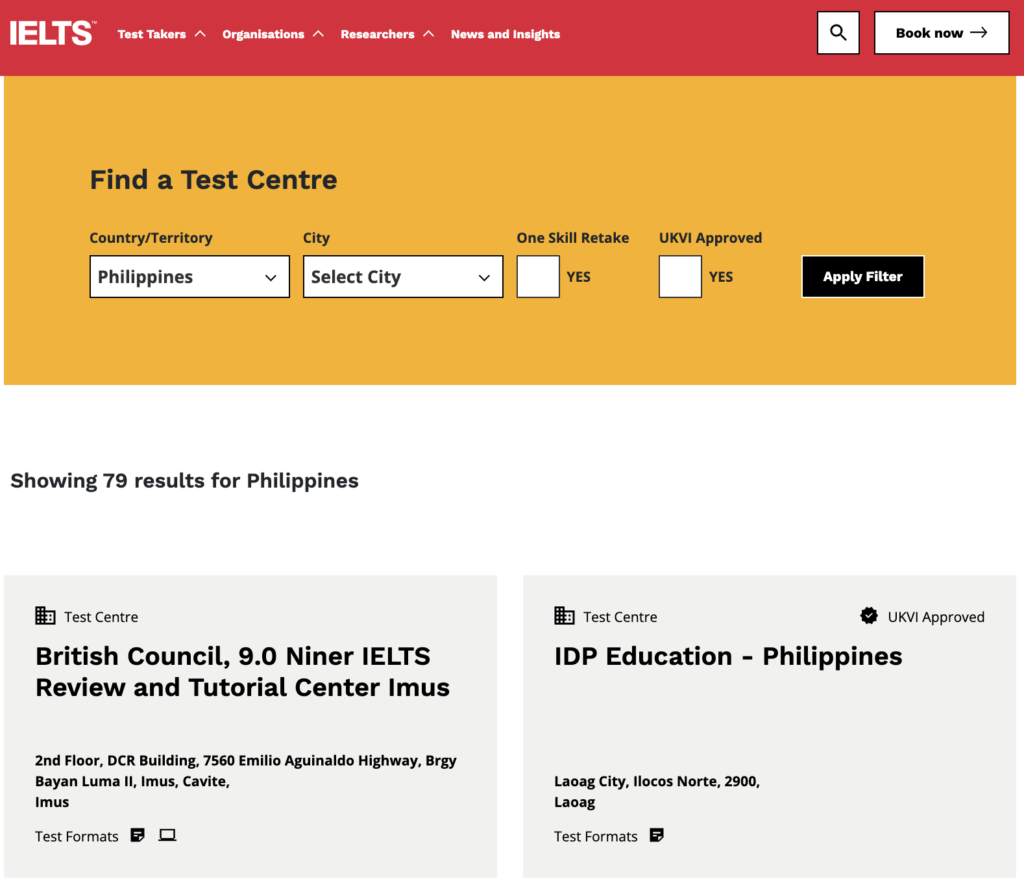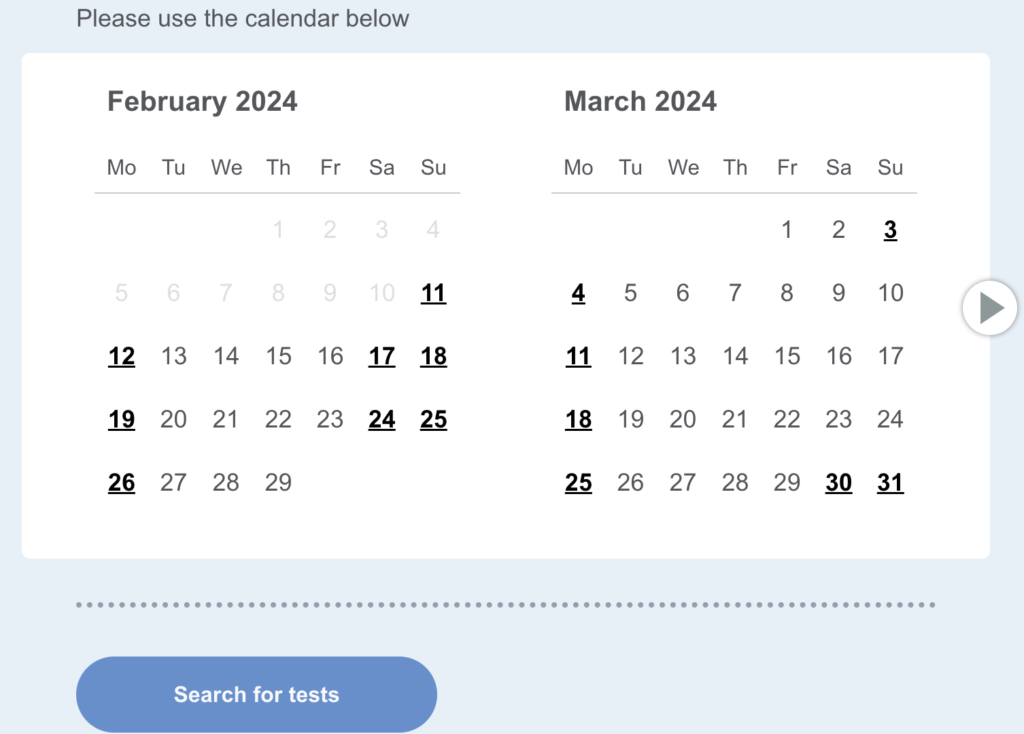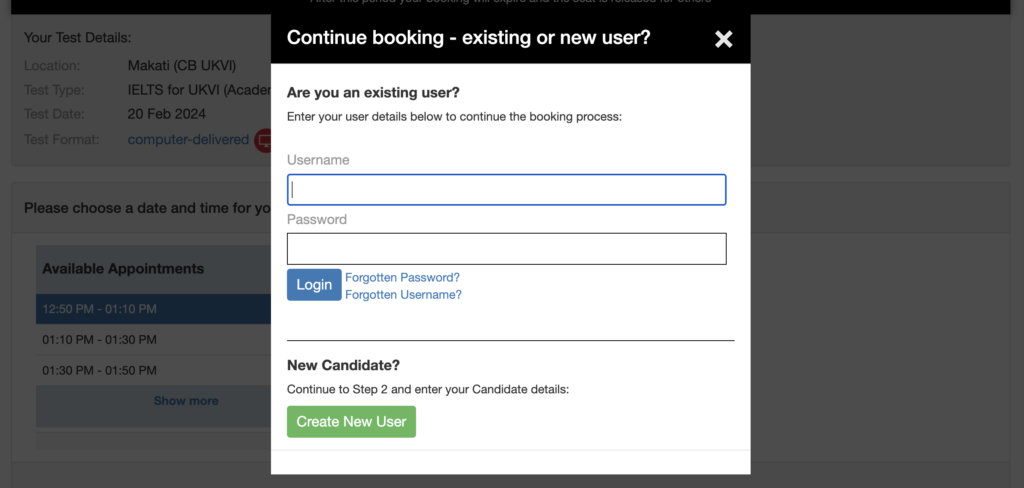The IELTS is one of the world’s most commonly used language proficiency exams. Many countries use it in the immigration or work permit requirements and many universities use it as a requirement for admission. If you find yourself in a position where you need to take the IELTS in 2024, you should continue reading. This article will help you prepare for the IELTS.
What is the IELTS?
The International English Language Testing System or IELTS is a proficiency test developed by the British Council, Cambridge English Language Assessment, and the International Development Program of Australian Universities and Colleges (IDP). It is a high-stakes test because it is often used as a requirement in multiple educational institutions and the immigration processes of English-speaking countries.
Who manages the IELTS?
The British Council and the IDP jointly own the IELTS. In the Philippines, you can take the IELTS by applying to these two institutions.
When and Where is the IELTS held in the Philippines?
The IELTS is held at least once every month in multiple locations around the Philippines. The IDP and the British Council have branches in most major cities around the country. In places where they do not have testing facilities, they rent locations from hotels and event centers to conduct tests.
How to Take the IELTS in the Philippines in 2024?
The IELTS Exams are held in various locations throughout the Philippines. If you want to take the IELTS, you may want to find a testing center near your area. Some exams are held in review centers while others are done through special events hosted by the IDP and British Council. Here are the steps you may want to take if you choose to take the IELTS in 2024:
Step 1: Decide on a Testing Location and Testing Format
To check if there is an IELTS exam near you in the future, click here. On the IELTS website, you will have the option to search for your city or the city nearest to you. Once you’ve applied the search filters, the search results should show you the various exam venues available in that city.

Step 2: Book an Appointment with your Preferred Test Center
If you see a testing center near you that offers your preferred test format, click on it, review the testing center details, and click on the Book Now button. This should redirect you to the website of the testing center. Before you book, make sure that you are familiar with the place and you are booking the right type of IELTS exam. Fewer testing centers offer the UKVI IELTS exam, for example. If you need to take this test, make sure that you are not booking the non-UKVI test.
Step 3: Choose a Date
On the IDP or British Council website, you will be prompted to choose a date for your exam based on the available dates. Choose the date that works for you and click continue. Although you can only click on one date on the calendar, you should be aware that some test centers take two days to complete an exam. Usually, the speaking test is scheduled separately from the res of the pen and paper IELTS tests.

If you are taking the computer-delivered test, you will also have the option to choose the appointment time.
Step 4: Create an Account and Make Payment
With the test center, testing date, and time chosen, the next step is to pay for the exam. The payment is done online on either the IDP or British Council website. You will need to create an account to proceed on either website.

Step 5: Confirm Booking Details
After completing the payment, you should receive a confirmation email regarding your appointment and transaction. Make sure that the details of your appointment match your expectations. If you want to make changes, you can do so on the website of the testing center or by contacting their customer support.
How much is the IELTS exam fee in the Philippines?
The registration fee for the IELTS exam increases every year. It also varies depending on the type of test that you will take. As of the writing of this article, the lowest price is P9,500 for the IELTS Life Skills exam. The regular IELTS Exam is P12,350 for both the Academic and the General Exam. The IELTS for UKVI (UK Visa Application) costs P12,720 for both the Academic and General Exams.
Updated 2024:
- Life Skills A1 and B1: P9,500
- General Training Test: P12,350
- Academic Test: P12,350
- UKVI General Training Test: P12,720
- UKVI Academic Test: P12,720
Exam Structure
There are two general types of IELTS, the Academic and General Exams. The type that’s best for you depends on your purpose for taking the IELTS. For most immigration processes, you will only need to take the General IELTS. If you are using it to apply to a university, they may require you to take the Academic exam. It’s best to check with the institution that is requiring you to take the IELTS on the type of exam that they want you to take.
The IELTS tests your proficiency in the four macro-skills in English:
- Reading
- Writing
- Speaking
- Listening
To be successful in your first IELTS exam, first, you have to have an excellent command of your use of these English Skills. Second, you must have practiced the test format of the IELTS before taking the exam. Even native English speakers may fail to score high in the IELTS if they are not familiar with the exam format or if they fail to practice it.
What to Expect During the Test
The IELTS test will measure your proficiency in each macro skill. Each test will be scheduled and will have its time limits. The speaking test is completely controlled by the examiner so you don’t have to worry about managing the time here. For the listening, reading, and writing tests, the time limit is often projected in front of the room. The invigilators also announce when the exam is about to end.
Important: You must stop writing when the invigilators tell you that the time is up. If they see that you continue to write after the time for the exam has expired, they will take your exam and not let you continue with the exam.
- Speaking Test
To take this test, you will have to choose a schedule based on the availability of the examiner. The speaking test is held either a day before the rest of your test or on the day itself, after the rest of your other tests.
Expert Tip: I like to take the IELTS speaking test before the other exams so that I can focus on the other three on the main exam day.
You should arrive at the speaking exam venue (usually in a testing center or a local hotel in places without a testing center) ahead of your schedule. You will be given a time for your exam and when you should arrive at the testing center. When your name is called, you will be asked to enter a room. Across the table, the examiner will motion you to sit down. They will set up the recorder. When you and the examiner are ready, they will ask you a series of questions. Your goal is to answer the questions with correct grammar and without stammering or stuttering. You will be graded a band score between 1-9 based on your performance.
After the exam, you will be asked to step out and call the next test taker. The examiner will listen to your recording again to grade it.
- Reading Test
The rest of the tests come in two types, the pen-and-paper test, and the computer-based test. If you are in the NCR, you can take the computer-based test at the IDP or British Council testing center. This test, however, is not available in some cities outside of the capital. For places without the computer-based test, you will have to take the pen-and-paper test.
The reading test is given on the same day as the listening and writing tests. In this exam, you will be given a questionnaire with reading materials in them and an answer sheet. You will have to read the reading materials and answer the questions that follow. The reading test will test your comprehension. Some questions ask for a direct answer while others ask you to complete sentences by adding words in the blank spaces. When the time is up, the invigilators will collect the test questionnaire.
The reading exam is one of the tests where you can get a perfect score. Unlike in the listening test, you will have time to go back to the questions and the reading material. If you have time after you finish answering the test, you could review the questions and the materials.
- Listening Test
The listening test questionnaire is given together with the reading test. In this part of the test, the invigilators (the people monitoring the exam) will play a recording. This recording will be played either on the speakers of the testing location or through earphones. It varies with every testing location.
The audio recording will have the instructions for the test as well as the listening test material. Before the test starts, you will be given time to write your name and fill out the other information required. You are allowed to answer questions as soon as the test starts.
When you are done answering questions, you will be given time to review your paper before the answer sheet is collected.
- Writing Test
The writing test is often the last of the three tests. In this part, the questionnaire will contain two questions and you are supposed to write your answers on the sheet provided. Your work should be clean and legible. The examiner will not bother to decipher your penmanship if they do not understand a word.
You will be graded based on your grammar, and the structure of your paragraph.
Important: It is common for novice test takers to get low scores on the writing test because they did not finish the test. You must learn to manage your time and strategize for this test. Otherwise, you may also end up with the same fate.
Get the McGraw-Hill IELTS eBook
Tips on How to Pass the IELTS
1. Set your target score
Before preparing for the IELTS, you should already know what band score you want based on your goals. If you are using the IELTS as an immigration requirement, for example, you should check what the required score is for you to get your visa. If you are an international student, check with your school to know what score you need to get in.
2. Identify Your Weakness
Next, you need to take practice exams to assess your readiness for the IELTS exam types. Remember that it is not enough to know how to use English. You also need to master the test format. IELTS requires both English and test-taking skills.
Think of your first practice tests as diagnostic tests. Identify where, among the four macro skills, you are most likely to score low. Your weak areas will drag your overall band score down. You will get a low overall band score if you get a low score in one of the four even if you score high in two or three tests.
3. Find IELTS Review materials
Practice is the key to doing well in the IELTS. To practice, you will need to review materials. There are some free ones available on the internet. You can also go to paid options if you think these free materials are insufficient.
4. Give ample time to practice
The right preparation time for the IELTS varies for each person. If your grammar is already excellent and you know how to create test-taking strategies, one month should be enough time to practice for the exam.
If you still need to work on your grammar, on the other hand, you may need more time. The IELTS costs too much for you to take it as often as you would like. If you want to take the IELTS only once, give yourself enough time.
5. Practice on each test every day
To hone your skills in test-taking, find the time to practice every day. When you practice, try to emulate the right test conditions. Don’t cheat and time yourself. Your goal is to improve your performance each time you take the test.
Practicing conditions your brain on how to react during the time of the test. It also allows you to identify difficulties that may affect your performance on the test and strategize for these difficulties.
My IELTS review students for example, often find the map-reading part of the listening exam difficult. If they did not encounter this type of listening exam during their practice sessions, they may have failed to strategize for it.
6. Ask for Feedback
For speaking and listening, you will need to find a person who will give you feedback on your performance. It is often difficult to find faults when we are evaluating our performance. Working with a coach or a study partner will help you identify distracting mannerisms and improper grammar habits. Only after identifying these issues will you be able to fix them.
7. Be open to criticism
You can only improve your English skills if you identify the issues in your four macro skills. When working with a study buddy or an IELTS coach, students who take criticism constructively often see the best improvements.



Good morning! May i ask if there’s a center that offers this IELTS near United Nations Ave. in Paco, Manila?
Hoping to get some information regarding this inquiry. Thank you so much!
I am failed at reading 3.5 but may target is 4.5,Thank your for the idea and tips it’s big help to us,may God bless you
Really appreciate this tips
Big help. Thank you so much.